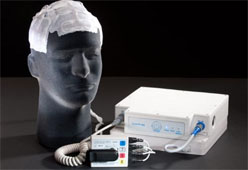Marketers to Stop Selling Cosmetic Contact Lenses
Three Internet marketers of cosmetic, “circle” contact lenses have agreed to resolve Federal Trade Commission (FTC) charges by entering into settlements that will put a stop to their alleged illegal practice of selling lenses to consumers without prescriptions.
Circle lenses are a type of decorative contact lens that covers not just the iris of the eye, as standard lenses do, but the white area as well. Wearing these lenses makes the eyes appear larger.
The settlements are part of the FTC’s ongoing efforts to help protect consumers from the health risks posed by improperly used contact lenses, through enforcement of the FTC’s Contact Lens Rule.
The Rule requires sellers to verify that a consumer has a valid prescription for all contact lenses, including cosmetic lenses that do not correct vision. According to the Food and Drug Administration (FDA), the improper use of contact lenses, whether they are corrective or not, can cause corneal ulcers, corneal abrasions, vision impairment, and blindness.
The three settlements with Royal Tronics, Inc. and Jamil Hindi; Gene Kim; and Thy Xuan Ho bring the FTC’s total number of contact lens enforcement actions to 10 since the agency issued the Contact Lens Rule in 2004.
According to the FTC, Jamil Hindi sold prescription contacts and circle cosmetic contact lenses through his Florida-based company, Royal Tronics, Inc. on the website www.mycandyeyes.com. New York-based Gene Kim, sold circle contact lenses on his website buyexclusive.net; and Minnesota-based Thy Xuan Ho, also known as Brandon Lee, sold the lenses on the website mycutelens.
The FTC charged that all of the defendants violated federal law by selling contact lenses without getting consumers’ contact lens prescriptions or verifying their prescriptions directly with the prescribers, and by failing to keep adequate records.
The settlement orders prohibit the defendants from selling contact lenses without obtaining a prescription from a consumer, or verifying prescriptions by communicating directly with a prescriber, from failing to maintain records of prescriptions and verifications, and from violating the Contact Lens Rule.
The settlement with Jamil Hindi and Royal imposes a $68,000 civil penalty, which will be suspended upon payment of $20,000. The other settlements impose civil penalties of $24,000 on Gene Kim and $5,400 on Thy Xuan Ho, both of which are suspended because of their inability to pay.
In each case, if it is later determined that the financial information the defendants provided the FTC was false, the full amount of their civil penalties will become due. The settlements also contain various record keeping provisions to assist the FTC in monitoring the defendants’ compliance.
The Commission votes to approve the proposed consent decrees were 5-0. The U.S. Department of Justice filed the proposed consent decrees on behalf of the Commission November 22, 2011 in the U.S. District Court for the Southern District of Florida (Royal Tronics, Inc., and Jamil Hindi doing business as MyCandyEyes), the U.S. District Court for the Eastern District of New York (Gene Kim, doing business as BuyExclusive), and the U.S. District Court for the District of Minnesota (Thy Xuan Ho doing business as MyCuteLens). The proposed consent decrees are subject to court approval. FTC made this announcement Monday, Nov.28.
The Federal Trade Commission works for consumers to prevent fraudulent, deceptive, and unfair business practices and to provide information to help spot, stop, and avoid them.
In the picture above: Sample Circle Contact Lens Ad. Courtesy: Federal Trade Commission






